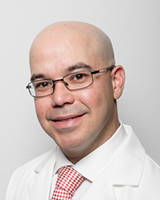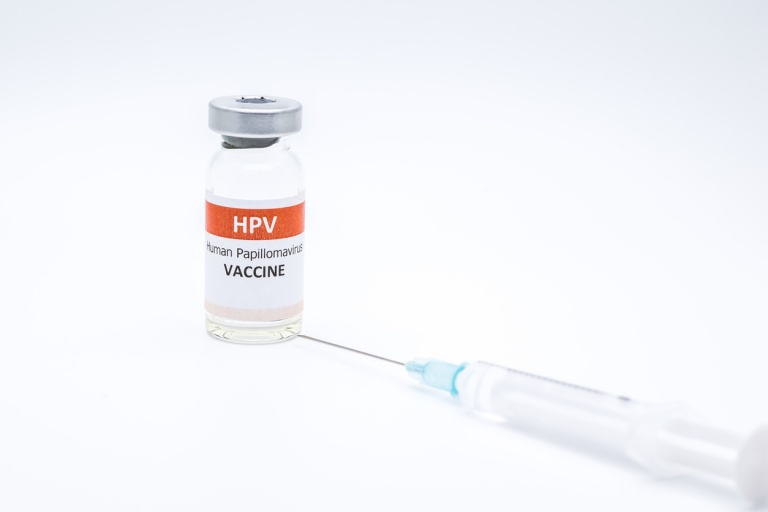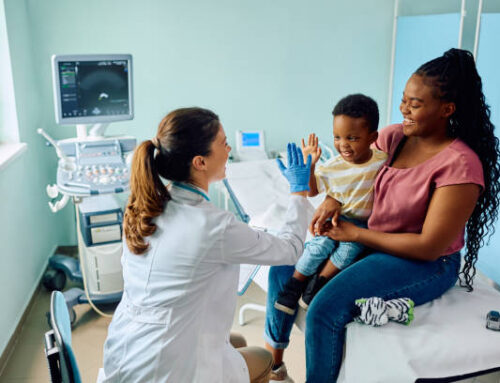Human papillomavirus, or HPV, is the most common sexually transmitted infection in the United States – so common that almost every sexually active person contracts one or more strains of the virus, according to the Centers for Disease Control and Prevention (CDC). Because HPV can cause cervical cancers, as well as cancer of the vulva, vagina, penis, and anus, the CDC recommends that all boys and girls ages 11 or 12 years old receive the HPV vaccination.
As a parent or guardian, you may have questions about the safety of the vaccine, as well as any side effects. Dr. Juan Carlos Millon of Worldwide Pediatrics and Primary Care Group, answers some questions for TopLine MD’s “Doc Talk” series.
How does the HPV vaccine work?
The HPV vaccine prevents infection from the most harmful strains of HPV. The HPV vaccine tricks the body to create immunity, but it is not a live virus vaccine. That means it cannot cause HPV infection or cancer. Instead, the vaccine uses a protein to help the immune system produce antibodies against HPV.
How do we know the HPV vaccine is safe for children?
The vaccine has been tested and proven safe for girls and boys, depending on the version your pediatrician recommends. Gardasil, which is recommended for both girls and boys, is safe for ages 9 to 26. It contains 4 strains of the virus and is administered in three doses. Cervarix, which is only for girls, contains 2 strains and is available to patients between 10 and 25 years old. It is administered in three doses.
Both types of HPV vaccines available in the United States are safe. There are four multinational studies that demonstrate Gardasil’s safety. Side effects from Gardasil may include fainting, pain or swelling near the injection site, headache, fever, nausea, and vomiting, which are common side effects from many vaccines. Cervarix side effects are similar and include pain or swelling near the injection site, joint or muscle pain, nausea, cold symptoms, and menstrual pain.
What is the difference between the two HPV vaccines available in the United States?
Gardasil protects against HPV strains 6, 11, 16, and 18 – in men and women, this translates to protection against genital warts, anal cancers, and anal intraepithelial neoplasia, which commonly precedes anal carcinoma. It also prevents cervical cancer in women and cervical/vulvar intraepithelial neoplasia, which are types of cancerous lesions.
Cervarix protects against strains 16 and 18, which means that it protects against cervical cancer and cervical intraepithelial neoplasia.
How effective is the vaccine?
Gardasil was shown to be nearly 100 percent effective in preventing precancerous cervical lesions, precancerous vaginal and vulvar lesions, and genital warts in a multinational study. Two studies of girls ages 9 to 15 showed similar results.*
*http://www.fda.gov/BiologicsBloodVaccines/Vaccines/QuestionsaboutVaccines/ucm096052.htm
Cervarix was proven to be effective in preventing abnormal cell growth; in one study, only four in more than 7,000 women developed precancerous lesions in the cervix after receiving the vaccine, in comparison to the 56 women who developed precancerous lesions after receiving a placebo.**
What is the age range for the vaccine?
Gardasil is approved for ages 9 through 26 (males and females); Cervarix is approved for females 10 through 25 years old.
Is the HPV vaccine covered by most insurance?
Yes. In addition, Merck, the manufacturer of Gardasil, offers a special payment program for women. You can find out more by visiting their Patient Assistance page. The manufacturers of Cervarix offer several programs here.
As a pediatrician, what question are you asked most about HPV and the HPV vaccine?
Parents ask me why males are also recommended for routine vaccination with Gardasil. This is usually because they associate HPV only with cervical cancer. However, there is a reduction of risk of penile and anal cancer for boys who receive the vaccine, and because men are carriers, vaccinating them also reduces the risk for women through passive transmission. In addition, boys who are vaccinated are less likely to have genital warts in the future.
What do you think that parents should know about the HPV and the HPV vaccine?
Some people wonder why their child should receive the vaccine if he or she is not sexually active. HPV vaccines only work prior to exposure to the HPV strains they protect against; the Centers for Disease Control and Prevention, for example, recommend routine vaccination with Gardasil for boys and girls 11 or 12 years old.
The vaccine does not encourage sexual activity in children, as indicated by several studies. In many cases, parents use discussion about the vaccine as a teachable opportunity.





